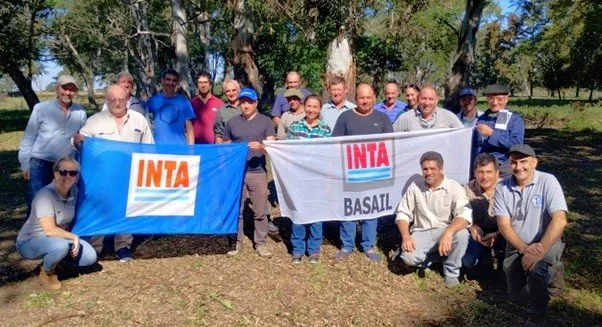Productivity was increased and environmental impact reduced in Argentine family livestock systems
Representatives from the New Zealand Latin America and the Caribbean (LAC) Climate Smart Agriculture (CSA) initiative recently took part in a series of workshops with family farmers in the South American Chaco region in Argentina. The workshops where part of the project Boosting cattle productivity in the South American Chaco Region, funded by the New Zealand Government, as part of its contribution to the Global Research Alliance on Agricultural Greenhouse Gases (GRA).
The workshops
The workshops took place in the Chaco Region, the large, hot, and wild area in South America spanning parts of Argentina, Paraguay, Bolivia. They provided an opportunity to bring together farmers, scientists and local extension providers to discuss how Climate Smart Agricultural practices have increased food security and protection of native vegetation in the region without increasing greenhouse gas emissions.
The workshops explored potential collaborations with other New Zealand-funded projects, including data exchange to test techniques with a current satellite grassland monitoring project for measuring pasture biomass. Combining data from the two projects would aim to enhance the satellite monitoring project’s data base.
Project Impacts
The project addressed low productivity among family cattle farmers in the South American Chaco (Argentina, Bolivia, and Paraguay). These producers represent more than 90% of the total cattle farmers in the region and own small to medium-sized herds (20-500 cattle). Ninety family farmers participated in the project by implementing technological improvements. Courses were conducted for both technicians and farmers on forage production, feeding strategies, infrastructure development, business management, herd management, and animal health. This training played a key role in the project’s success.
The results of the project were very positive, highlighting a 6.5% increase in weaning rates from improved forage resources, herd management and infrastructure enhancements. Also critical to these results was the development and implementation of a locally appropriate farm-level data recording system. However, the project's main success lies in the cooperation between scientists and local farmers.
The Wider Programme
Representatives from the LAC:CSA initiative also visited several programme sites including the INTA experimental station in Colonia Benitez, where they saw various trials of locally adapted CSA solutions for livestock systems. In total the programme involves 90 pilot sites serving as experimental, demonstrative, and training units.
As at June 2025, 124 training sessions were conducted with 2,532 producers and 152 extension agents. Participating producers, on average, have increased their initial calf weaning percentage from 54.5% to 61.9% (a 12% increase) even in a challenging climatic context, and raised their meat production by at least 10.1%.
For more information please see the project webstory.
The research team, local technicians and beneficiary farmers together with representatives from New Zealand’s Latin America and the Caribbean Climate Smart Agriculture initiative on a perennial pasture sown in Basail, Chaco, Argentina.
Project leader, Research team, local technicians and beneficiary farmers together with representatives from New Zealand’s Latin America and the Caribbean Climate Smart Agriculture initiative in a pilot site visit in Makallé, Chaco.
INTA Argentina Research team and representatives from New Zealand’s Latin America and the Caribbean Climate Smart Agriculture initiative.



